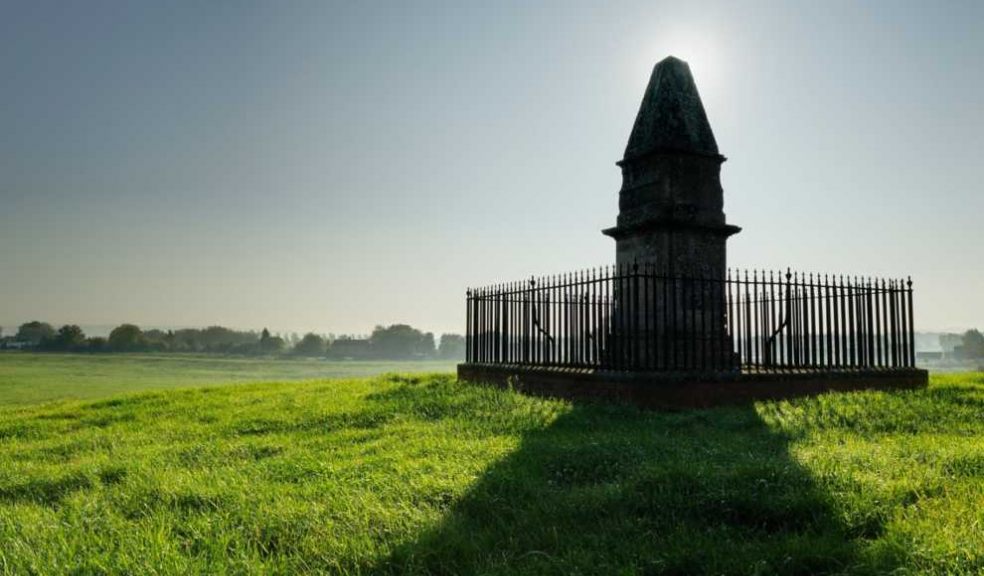
What Alfred the Great did for us?
-Philip St Lawrence writes about how Alfred helped him rediscover DEVON
Since as a boy I saved my pocket money, all of thirty shillings to buy my beloved copy of H.E. Marshall’s 'Our Island Story', I have been fascinated by British history. From heroes such as Drake, Wellington and Richard the Lionheart, not forgetting Robin Hood himself, I revelled in their noble and sometimes not so noble stories. In fact, when it came to Robin Hood I became so intoxicated with the tales, I remember drafting in long hand a book of a hundred pages or so at about the age of twelve. It was never to see the light of day of course, but it offered a certain fulfilment as a way of satiating my thirst for history, albeit soaked in a fine dose of legend.
That thirst still not assuaged, led me to study Alfred the Great - and what a richly rewarding experience it has been. For here is a king, our only ever leader to have been conferred the epithet 'the Great' so hugely deserved as I discovered, that surely stirs the imagination and feelings of awe in equal measure.
When Sir Winston Churchill was reputed to have been addressed by a young journalist as the greatest ever Englishman, Churchill corrected him. That soubriquet belonged to another he told him, to Alfred. Certainly, in his most readable treatise 'History of the English-Speaking Peoples' Churchill is effusive about the 9th century Christian king. Fortunately, the Anglo-Saxon Chronicle has handed down to us details of his reign which may to a great extent be taken as detailed and accurate.
What is so interesting is that while many know of Churchill's own darkest hour story, few know of that of Alfred which was in many ways just as momentous for in his case the enemy had already landed and were entrenched across much of England. Moreover, our own locality was directly involved.
So it was that the idea of writing the novel 'Unresolved' was conceived. Although essentially a conspiracy tale set in the heart of the Brexit negotiations, it actually contains a 'book within a book' as our Civil Servant heroine reads of Alfred and discovers intriguing historical parallels at Britain's momentous hour and draws dramatic conclusions as a result.
It was just after Christmas in 878 that Alfred finds himself staying at Chippenham with the Great Viking Army led by Guthrum but 29 miles away at Gloucester. Taking Alfred by surprise, Guthrum suddenly launches an attack forcing Alfred and his retinue to flee, eventually reaching the Somerset levels and taking refuge on the 'island causeway' of Athelney standing as it did above the marshes. Alfred is a stalwart defender of sovereignty and his hiding place in Somerset borders the constituency of Jacob Rees-Mogg - just one of many historical parallels?
Following the publication of 'Unresolved', presenting talks upon the darkest hour story has necessitated the joy of photographing Athelney in the knowledge that I was quite literally standing in the footsteps of our greatest king. Yet is it not somehow appalling that the inscription upon the monument to this man is practically illegible? A donation from any profit on the novel must surely be sent.
Whilst in hiding Alfred receives the encouraging news that the West Saxons led by Odda have beaten a second Viking force near Lynmouth in North Devon. Yet another historical parallel springs to mind for surely Odda is to Alfred what Blücher was to Wellington? Again, mindful of my forthcoming power point presentations on the subject, I found myself photographing the battle site set high on the dramatic cliffs at the northern tip of Exmoor.
This area just to the east of Lynmouth is steeped in history and I found it quite magical standing on the cliffs imagining the 23 Viking longships as the Anglo-Saxon Chronicle describes, landing on the majestic North Devon coast not knowing that they would be soundly defeated at Countisbury leaving nearly a thousand of their number dead on the battlefield. On a summer's day the panorama from these high hills over a thousand feet above sea level, is surely something every visitor to Devon should experience!
Freshly encouraged, Alfred is determined his followers should not lose heart. It is here we can see his vision and resolve that marks him out as such a great leader at Britain's momentous hour. Determined to no longer pay the Vikings vast sums or accept their domination of his people, he keeps alive the noble aspiration of freedom, even as some of his people are parleying with the Vikings. In writing the novel, it was the historical parallels that intrigued me which was why our Civil Servant heroine also discovers the lessons from the past in Chamberlain's handling of Munich - but that is another story.
In fact it was not just from researching material for 'Unresolved' that my rediscovery of Devon arose. Scenes in my first novel 'Message from Joshua' were set around Lyme Regis where I had attempted to take on the wonderful John Fowles in producing a drama and romance spread over three generations.
But back to Alfred, for as Easter of 878 comes and goes, instead of remaining reactive, he takes the fight to his adversaries sending out his messengers across Wiltshire, Hampshire, Devon and Somerset telling them to meet him just south of Warminster at Egbert's Stone. Interestingly there is evidence Alfred is more cautious about letting his plans be known in parts of Dorset since he is aware of their collusion with the Vikings. This happens to include the constituency of Oliver Letwin who has also played a part in the recent Brexit shenanigans. Another parallel?
From across Wessex our area of Devon included, young men and old armed only with the most rudimentary weapons, spears and farmyard axes answer his call. They are overjoyed at finding their inspirational leader alive and together they go on to inflict a devastating defeat upon the Great Viking Army of Guthrum at Edington. It is at this point that Alfred distinguishes himself truly as 'the great' for passionate about his Christian beliefs, rather than executing the Viking leader he takes him back to Athelney and baptises him, intent upon turning his tormentor into a man of peace. Once again in preparing my 'Darkest Hour' talks I found myself photographing near Athelney the Anglo-Saxon font said to be used at this auspicious occasion.
Alfred and his sons secured the freedom not only of our own locality but of all Wessex comprising most of southern England and later much of the rest of the country as well. The story of Alfred takes up a sizeable chunk of 'Unresolved' as our heroine discovers the lessons from the past and how Alfred's inspirational leadership compares with the present. She wonders whether she and her political masters have the same resolve to see the matter of Brexit through? What a study! What a man! And what a privilege it has been to research it!
'Unresolved' by Philip St Lawrence. To arrange a talk on Alfred the Great - his Darkest Hour, write to www.greatesthour@outlook.com
by Philip St Lawrence





















